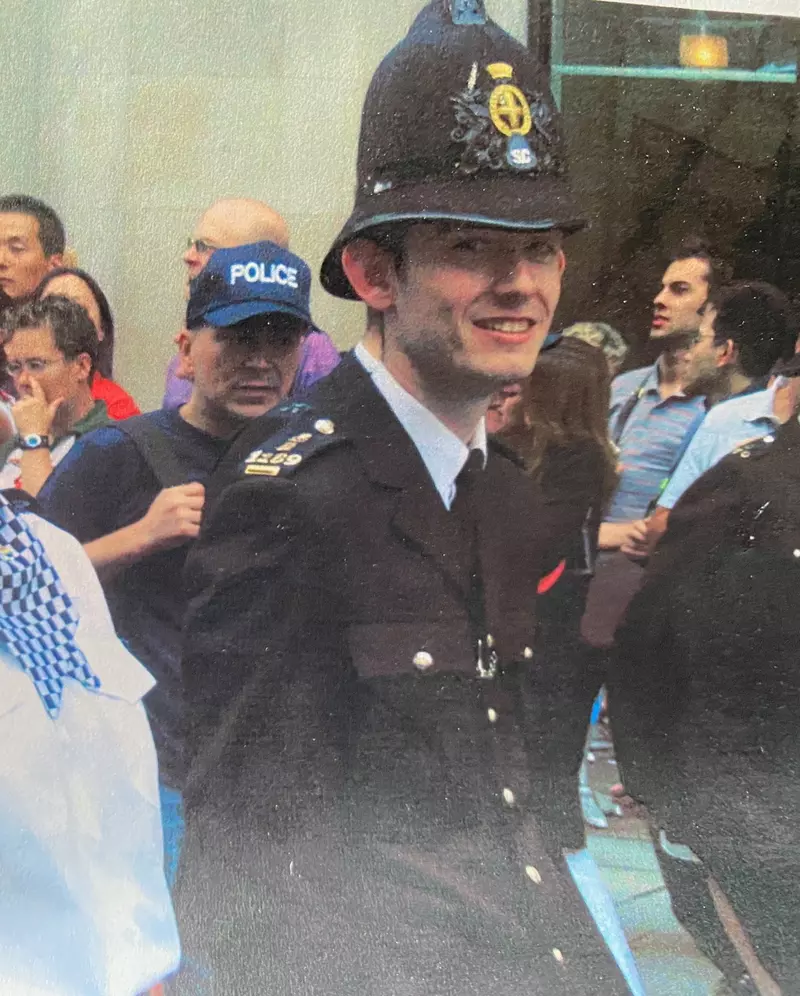What Pride means to me: Simon’s story
Simon, who was diagnosed with Parkinson's when he was 35, talks about 'coming out' with Parkinson's and what Parkinson's UK marching in the London Pride parade means to him.
I came out quite young. I was around 14 or 15 so I was at school at the time. Luckily for me, it was relatively easy. When I told my mum, she was like "yeah, I already know". I got a bit of grief in school, but nothing drastic.
It’s never been a problem for people in my experience, though, and I haven’t faced any difficulties with my Parkinson’s care. I’ve been lucky with the care I’ve received and the acceptance has been really good.
The struggle for me was getting over the internal conflict. When I came out it was the 90s, and it wasn’t as socially acceptable to be gay as it is now. Thoughts go through your head like "I shouldn’t be like this", "I can’t be like this", but you just have to kind of get on with it. You can’t change it, so I got to the point where I thought "yes, I am gay. I’m just going to get on with it".
'Coming out' with Parkinson's
That was the initial coming out. But as you go through life you have to come out several times over, like when you start a new job for example.
There are some similarities with Parkinson’s in that respect. Because I’m a young person with Parkinson’s, when people initially see me they probably think there’s nothing wrong with me. I medically retired from work last year and I sometimes feel I have to explain to people why I’m not working anymore. It’s like ‘coming out’ but with Parkinson’s.
I’m gutted that I’m not able to make it to march with Parkinson’s UK at the London Pride Parade this year, but I have marched before when I worked with the police. I know there are confidence issues with the police for lots of communities, so to show that you can be part of the LGBT+ community and be part of the police meant a lot to me, to try and bring that trust back for the community.
I even got a bible thrown at my head while marching the parade with the police once! Luckily it just bounced off my helmet, but stuff like that makes me stronger. I just want to stand against those sorts of people.

Calling for people to respect each other
And for me, that’s what Pride is all about. It’s a party and a celebration, but it’s also our way of coming together to stand up for the injustices that have happened against the LGBT+ community and recognise that things are still not where they should be in terms of being accepted as a community.
I think it’s really important that Parkinson’s UK are marching in the London Pride Parade this year because it helps recognise that there are LGBT+ people within the Parkinson’s community, and it lets them know that they have a safe space. It’s important to know that if you are experiencing some sort of injustice, there are people that can support you. You have a support network.
It's just calling for people to respect each other, whatever their differences are, whether that be health, sexuality or anything else, and just to support each other and be kind.
Give us a cheer at London Pride 2023!
We're so excited to be taking part in the London Pride parade on Saturday 1 July! If you're able to, we'd love to see you there. Find more information on the Pride in London website.
Join our LGBTQIA+ network meeting
Our online LGBTQIA+ network meeting is a safe space for people from the LGBTQIA+ community to meet people, share stories and support each other.
The online meetings run from 10am to 11am on:
- Saturday 2 September
- Saturday 2 December

